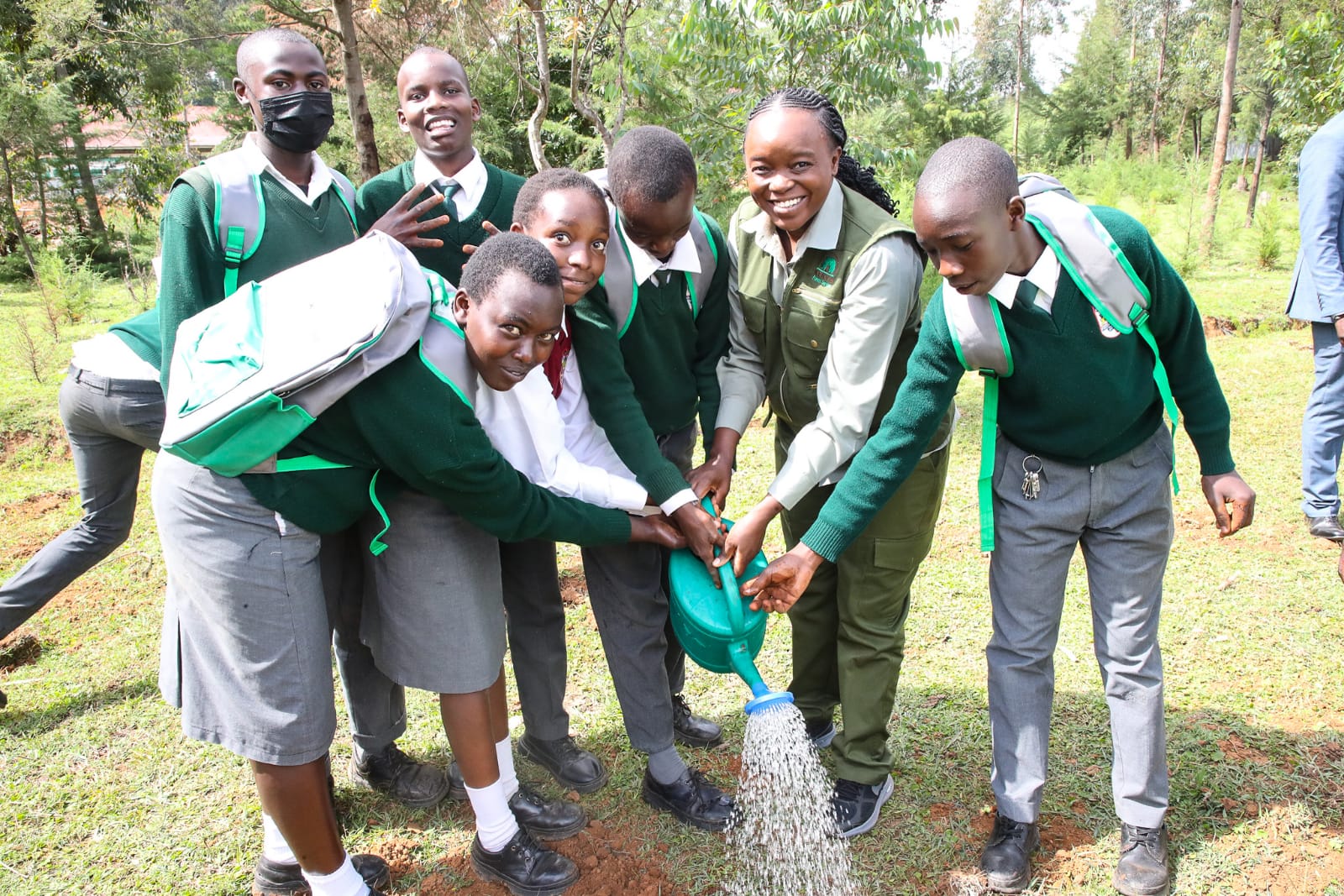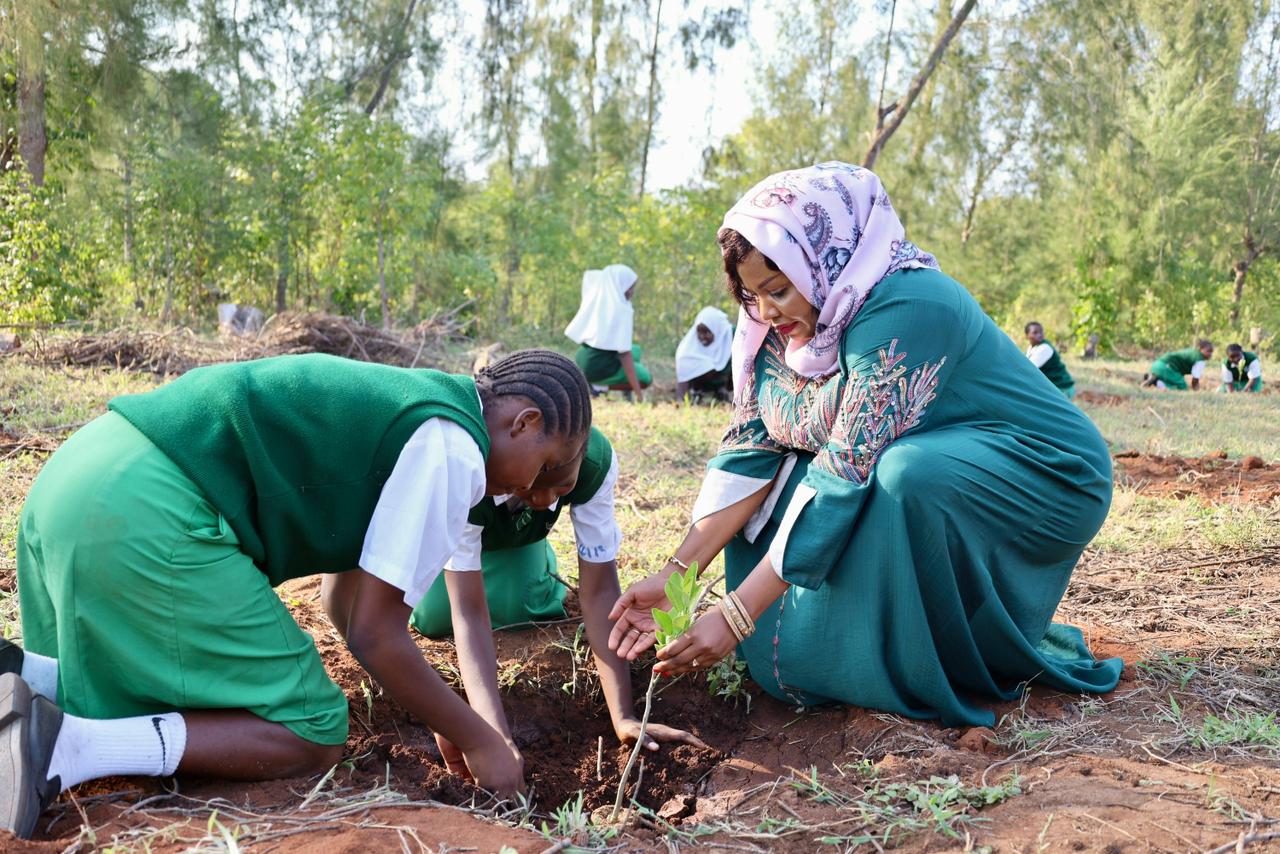

As the world focuses on green jobs, the circular economy and climate
resilience, alongside other initiatives such as climate financing to address
the impacts of climate change, Kenyans have been preparing to mark this year’s
Mazingira Day on 10th October 2025.
An annual event dedicated to celebrating environmental conservation and
promoting sustainable practices across the country in line with the
government’s Bottom-Up Economic Transformation Agenda (BETA) plan, the day’s
event seeks to nurture a generation of environmentally conscious citizens by
instilling sustainable values at the primary school level.
Its origin dates back to the days of the country’s second president,
Daniel arap Moi, when it was known as Moi Day. It has since evolved from Moi
Day to Utamaduni Day and recently became Mazingira Day following President
William Ruto’s assent to the Miscellaneous Amendments Bill 2024.
This year’s celebrations are being held under the theme “Citizen-Centric
Tree Growing and Environmental Stewardship: Going Back to Our Primary Schools.”
The theme highlights the crucial role of citizens, especially young
learners, in driving the country’s reforestation and climate resilience agenda.
The event is being led by President Ruto himself, who has dispatched the entire
Cabinet and Principal Secretaries back to their former primary schools to
spearhead tree-planting exercises within school compounds.
“Additionally, various schools across the country are expected to host
tree-planting drives, clean-up activities and awareness sessions in partnership
with local communities and government agencies,” explains the Cabinet Secretary
for the Ministry of Environment, Climate Change and Forestry, Dr Deborah
Barasa.
Dr Barasa adds that this year’s commemoration focuses on reviving
environmental stewardship through schools, encouraging learners, teachers and
communities to actively participate in tree-growing activities and
environmental education.
The CS encourages each of the Cabinet Secretaries, Principal
Secretaries, Chairpersons and Chief Executive Officers of State Corporations to
lead by example by mobilising communities at their former or designated primary
schools to donate and plant fruit trees and spearhead clean-up exercises.
Mazingira Day provides a national platform to reflect on the progress
made in environmental protection while renewing collective efforts to combat
deforestation, pollution and the effects of climate change.
“This year’s choice of fruit trees is very intentional. Fruit trees are
life-giving—they feed, shade and sustain life. They provide nourishment for our
children, income for schools, and shade that cools classrooms and improves
learning environments,” notes the CS.
In addition, she observes, fruit trees represent continuity, the idea
that the trees we plant today will feed and sustain others long after we are
gone.

Each school is expected to meet its target of planting at least 2,000
fruit trees, while learners will be given seedlings to take home and extend the
impact into their communities.
The National Youth Service (NYS), the CS says, has fruit tree seedlings
available across the country at a cost of KShs. 150 each for those interested
in extending the planting to their home farms.
At the primary schools, every Cabinet and Principal Secretary will be
required to purchase and donate these seedlings to their respective schools.
Chief Executive Officer of the Kenya Forestry Research Institute
(KEFRI), Dr Jane Njuguna, expresses confidence that the country is on course to
sustain fruit trees even in the arid and semi-arid areas, mostly in the North
Eastern region, noting that there are varieties suited for such conditions.
“The fruits can withstand the harsh climatic conditions of the area, as
they do not require too much water or manure, ensuring the sustainability of
the fruit trees,” Dr Njuguna emphasises.
With President Ruto’s vision to create jobs, the Ministry of
Environment, Climate Change and Forestry, through CS Barasa, has launched the
Agroforestry and Bamboo Development Strategies to scale up tree-based value
chains, create green jobs and build local industries that link tree growing
with livelihoods.
As the tree planting progresses, Kenyans are urged to take part in
local activities and contribute to the national target of increasing tree cover
and restoring degraded ecosystems.
The Ministry has reiterated that true environmental transformation will
only be achieved through citizen involvement and long-term commitment to
nurturing and sustaining planted trees, in support of the nation’s goal to
plant 15 billion trees by the year 2032 to tackle carbon emissions and make the
country greener.
OGS/ Oprah Nyaboke works at the Office of the Government Spokesperson.













